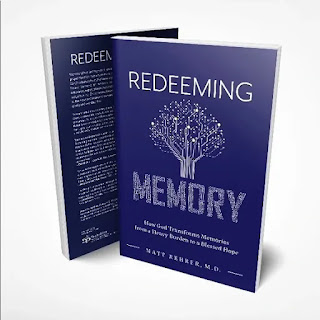A cudgel is a club-shaped weapon. We can wield the cudgel of memory and distort the good and bad past to wound the present. Distortions center around comparing past and present.
THE DISTORTIONS OF A GOOD PAST
(1). Grumbling - Israel rejoiced when God delivered them from Egyptian slavery. One month later they are in the wilderness complaining about present circumstances longing to go back to Egypt to enjoy its "blessing" (Exodus 16:3). Grumbling directs faults at others like Moses who led them out of Egypt. This grumbling was against the Lord (Exodus 16:8) even as He provided quail and manna for them. In grumbling the grass is always greener on the other side. They lost sight of God's grace. God gave them manna for their needs but also to teach them that we live by the Words of God (Deuteronomy 8:3). God would use experience to also show US that Jesus, the Word, is the bread from heaven that we feast on to live eternally (John 6:35). The crowd even grumbled after Jesus' gracious feeding of them. See how Israel's memory failed and led them to think God's provision is not enough.
(2). Nostalgia - Israel longed to return to Egypt because they remembered that they ate a good variety while in the wilderness they only had manna (Numbers 11:5-6). Their memory failed and they forgot the slavery while exaggerating the goodness with a sinful nostalgia. They wanted the melons of Egypt instead of the grapes of the Promised Land. They looked back sinfully and wrongly instead of looking forward according to God's Word and promises. In nostalgia you sacrifice the present to try and live in the past which is impossible. You prefer to be in a previous moment instead of the one God has brought you to.
DISTORTIONS OF A BAD PAST
(1). Bitterness - Our minds will recall bad memories from the past to spoil the present moment. Bitterness burns bridges and builds barriers. In the book of Ruth, Naomi tells the people in Bethlehem, "Do not call me Naomi, call me Mara, for the Almighty has dealt very bitterly with me." Naomi let her past and bitterness define her. God's goodness was not in purview.
(2). Regret - What could have been, is not what is. The mind will replay this and corrupt the present. A.W. Tozer said that regret may be no more than a form of self-love. You're disappointed that you don't live up to your own expectations instead of reveling in the grace of God. Regret sometimes arises from maturity in that it looks back and acknowledges one's own failings, BUT it fails to remember that current maturity is only derived from learning from those failures.
(3). Shame And Guilt - Whether it is because of past sin or suffering, shame leaves you feeling worthless. Shame is fear of worthlessness while guilt is a fear of punishment. Shame arises externally. True guilt arises from conviction and conscience shaped by God's Word and Holy Spirit. God can use guilt to turn you to Him. Defective memories can leave you feeling guilty and you may run away from the situation or experience instead of moving Godward. Psalm 32:3-4 speaks of the body wasting away in response to guilt. Guilt over sin may cause people to seek self-forgiveness even though they are not the offended party. The memory fails to recall who the sin is really against and so people seek human remedies. Self-forgiveness is not forgiveness at all and not taught in Scripture.

No comments:
Post a Comment